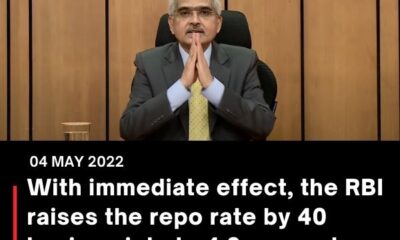The big takeaway from the report of the Reserve Bank of India (RBI)’s internal working group (IWG) on ownership guidelines for private banks is the proposal to allow large corporate and industrial houses to promote private banks.
In the past, the RBI has been largely hesitant to let large businesses promote banks.
In the previous rounds, when the RBI had issued private bank licences, the banking regulator had permitted corporate houses to apply, but turned down their applications, and preferred financial institutions which had experience in banking transactions.
That approach may change now.
The proposal, however, comes with certain riders. According to the IWG recommendations, large corporate/industrial houses may be allowed as promoters of banks only after necessary amendments to the Banking Regulation Act, 1949.
This is aimed at preventing connected lending and exposures between the banks and other financial and non-financial group entities and strengthening of the supervisory mechanism for large conglomerates, including consolidated supervision.
The other major takeaway from the proposals is to allow large non-banking financial companies (NBFCs) to convert into banks. Well-run large NBFCs, with an asset size of Rs50,000 crore and above, including those which are owned by a corporate house, may be considered for conversion into banks, subject to completion of 10 years of operations and meeting due diligence criteria and compliance with additional conditions specified in this regard.
This too will help many corporate houses running NBFCs under their fold to become banks if they wish to do so.
The last time (2013-14) when the RBI invited applications for new private banks, a host of corporates including Tata Sons; the Aditya Birla Nuvo, part of the Aditya Birla conglomerate; L&T Finance Holdings, part of India’s largest engineering conglomerate Larsen & Toubro; Reliance Capital; and INMACS Management Services Ltd, which provides management consultancy, corporate finance, audit, tax, and legal advisory services, had applied for permits.
Only Bandhan and IDFC got licences.
There seems to be an attempt for consensus with respect to the percentage of stake the private bank promoter can eventually hold. The cap on promoters’ stake in the long run (15 years) may be raised from the current level of 15 per cent to 26 per cent of the paid-up voting equity share capital of the bank, the RBI group has said.
As regards non-promoter shareholding, a uniform cap of 15 per cent of the paid-up voting equity share capital of the bank may be prescribed for all types of shareholders, the proposals said.
There were tussles between private bank promoters and the regulator with respect to promoter holding. Private sector lender, Kotak Mahindra Bank had taken the regulator to court in connection with a dispute on promoter Uday Kotak’s holding. The RBI let the promoters, Uday Kotak and family, retain 26 percent stake, but capped the voting rights at 15 percent.
Similarly, the RBI had taken some punitive actions on Bandhan Bank for failing to reduce promoter holding. The restrictions were withdrawn after the bank complied with the regulations.
Overall, the IWG group recommendations address some of the contentious issues with respect to ownership norms of private banks.
Also Read: BIGG BOSS 14: KAMYA PUNJABI COMPARES KAVITA KAUSHIK TO SIDHARTH SHUKLA, CALLS PAVITRA’S OUTBURST ‘JOKE OF THE SEASON’

 Mahakumbh2 months ago
Mahakumbh2 months ago
 American Dream2 months ago
American Dream2 months ago.jpg)
.jpg) Bollywood2 months ago
Bollywood2 months ago
 Sunny Leone2 months ago
Sunny Leone2 months ago
 SSC Exam Calendar 20251 month ago
SSC Exam Calendar 20251 month ago
 Ajith Kumar2 months ago
Ajith Kumar2 months ago
 YouTube2 months ago
YouTube2 months ago
 Pahalgam Attack2 months ago
Pahalgam Attack2 months ago







.jpg)
.jpg)
.jpg)
.jpg)
.jpg)

.jpg)
.png)

%20(2).jpg)



%20(1).jpg)
.jpg)







